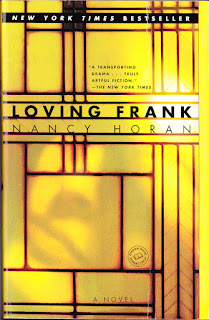Fiction and Fingers
CanStage's presentation of Cold Blood was the much-anticipated follow-up (but not prequel or epilogue, they point out) to last year's Kiss and Cry, created by Michele Anne De Mey, Jaco Van Dormael and the Collectif Kiss & Cry, with text by Thomas Gunzig. While some reviews found it not as satisfying as the first, I disagree, with one exception.
Cold Blood is very different than the other, and that is a good thing. While I loved last year's, this one was more disparate because its text was on a theme, whereas last year's was a theme along a narrative, and more linear. This week covered the topic of death but with humour, and there was more variation in the scenes: contrary to promotional material, there are more than just fingers and miniatures, including some surprises. Add music ranging from Bowie to Arvo Part and clever filming ideas, and you have a very satisfying show--and it's perfect for those with timely short attention spans. There was an excellent pre- chat by a professor of film history.
The only thing that didn't fly was a sub-piece about cannibalism (which might have been more horrific with Betroffenheit's mouth) that should have stopped after the first line. But perhaps we aren't as worldly as Europeans, are more uptight. But that part had no place in this production and did not match the beauty and delight that the rest of the multimedia show created.
Everything reviewed this week garners four wine and cheese awards. On to the books.
I'm broadening my horizons in my reading, stretching speculative fiction to include more sci-fi and being willing to take on recommendations about subjects I would normally reject. Hence my delighted surprise at loving a book about video-gaming, about which I know absolutely nothing at all, which indicates my level of interest since I've had decades to pursue it.... But I was hooked on page one. Author Ernest Cline makes gaming accessible to the luddite, and the book focuses equally on ephemera of the 80s, with satirical nods to the present (e.g. I saw Steve Jobs as a Willie Wonka-type; the media resonant of The Truman Show). There are several shout-outs to Can Con (like Rush and a Canadian character). The two winning components for me: the inclusion of a Latin teacher and her subject several times [but you had to call her Ms. Rank?? A little puerile, non?; and the following quote which opens "Level Three": "Going outside is highly overrated. ~ Anorak's Almanac, Chapter 17, Verse 32." My one gripe: the author and his editor(s) should, like most of the world, learn the difference between mazes and labyrinths (pg 369-370).
Still, this 'genre-busting' novel has wide appeal. I, shocked, highly recommend it.
http://seejanewritemagazine.com/2013/08/12/loving-frank-a-feminist-historical-fiction-romance/
This other novel by Nancy Horan (see previous post about The Wide and Starry Sky) was even more addictive. It delved further than suffrage and more into the women's roles and personal rights a hundred years ago. Much more than just historical fiction/romance, Horan has done sufficient research into Frank Lloyd Wright's architecture, but it does seem to want to predominate the story at times and then retreats without much intention. An example of which is the sub-story of Chicago's Midway Gardens, which I had known nothing about. (And I doubt you do either: google to see why.) But it is an addictive yarn, strong on the character of art and architecture as much as the protagonists. But my lord, I did not see the climax coming! (Spoiler: don't google the story before reading.) And just then I was listening to the twelfth movement of Poulenc's Stabat Mater, "Quando corpus"!! Try and arrange this for yourself: guaranteed goosebumps.
http://ecx.images-amazon.com/images/I/71v102EGQ8L.jpg
My final read reco is The Long Walk by Stephen King, writing as Richard Bachman. Having been won over from snobbism to the genius of King's craft, I promise you this spec fic book from 1979 completely holds up today. Absolutely riveting and chilling, a gem for this reader. Presciently has lessons and unintentional commentary for today.
Next time: A review of Mark Alpert's The Orion Plan. See my review of his YA book, The Six.






Comments